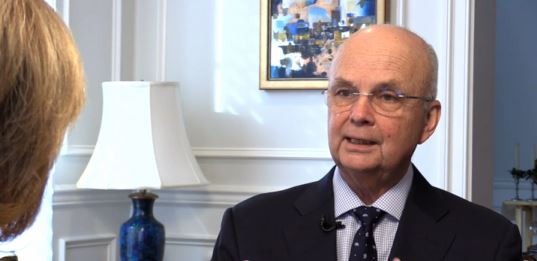On Monday, a former director of the U.S. National Security Agency — Michael Hayden — took a middleground stance on the Apple/FBI encryption debate, supporting the FBI in the short term while opposing a universal backdoor in devices.
"In this specific case, I'm trending toward the government, but I've got to tell you in general I oppose the government's effort, personified by FBI Director Jim [James] Comey," Hayden explained to USA Today. "Jim would like a back door available to American law enforcement in all devices globally. And, frankly, I think on balance that actually harms American safety and security, even though it might make Jim's job a bit easier in some specific circumstances."
In the case of an iPhone 5c belonging to dead San Bernardino shooter Syed Farook, the FBI is demanding that Apple remove the limit on passcode attempts for Farook's phone, rather than decrypt it. Comey has insisted that the agency's interest is limited in scope — Apple, however, has argued that giving the FBI a workaround would allow it and others to break into any iPhone, and is actively fighting the order.
Though he left the NSA in 2005, Hayden is responsible for establishing some of the mass surveillance apparatus that would later be exposed by people like former NSA contractor Edward Snowden, including a domestic phonecall database.
In the interview, Hayden argued that while mandatory backdoors would be extremely useful for the NSA and other intelligence agencies, the U.S. is a "safer, more secure nation" without them, since other parties would take advantage. The latter view has also been expressed by Cook.
 Roger Fingas
Roger Fingas








 Malcolm Owen
Malcolm Owen
 Amber Neely
Amber Neely


 Christine McKee
Christine McKee

 Chip Loder
Chip Loder
 Marko Zivkovic
Marko Zivkovic









20 Comments
The US being a safer nation without back doors comment at the end sound more like leaning toward Apple.
He's simply making the pragmatic point that such a back door would make some investigations easier for law enforcement agencies, who are tasked with stopping this kind of event. I don't think that one should criticize the FBI too much for asking for all the assistance that they can get. It is up to the courts to protect Apple, and others, from undue burden as a result.
Watch this video of him speak on the subject.
http://www.wsj.com/video/hayden-the-pros-and-cons-of-access-to-encrypted-files/B45F7083-CC7C-4097-80CD-11D3D490F1EB.html